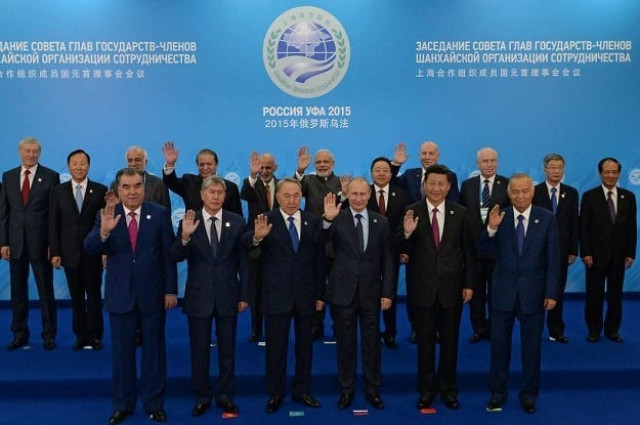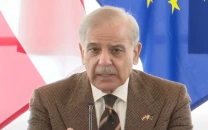SCO admits Pakistan as a full member
India also granted membership of emerging security bloc

India also granted membership of emerging security bloc. PHOTO: INP
Pakistan on Friday gained full accession to the Shanghai Cooperation Organisation (SCO) – a powerful regional security and development bloc – after the grouping’s Council of Heads of States approved the move.
India was also accepted as a member state.
Russian President Vladimir Putin announced the decision to include the nuclear-armed neighbours at the 15th SCO summit, which began in the Russian city of Ufa, where prime ministers of both the countries were present.
PM Nawaz Sharif said his country’s inclusion into the ambit of the grouping was a “turning point” in the history of the SCO.
“I am honoured to represent my country at this prestigious forum and am confident that SCO’s expansion would prove a watershed in the changing geopolitical landscape of the Eurasian belt,” he added.
Full membership to the group also offers Pakistan greater access to the energy resources of Central Asia.
Pakistan, the premier said, attaches great importance to its SCO membership and shares deep-rooted, historical and cultural links, and strong economic and strategic complementarities with the member states. “Cordial and mutually beneficial economic relations with the SCO member states would be Pakistan’s foreign policy priority,” he added.
The group dominated by Russia and China also includes former Soviet republics of Kazakhstan, Kyrgyzstan, Tajikistan and Uzbekistan. It was created on June 15, 2001, in Shanghai. Pakistan had an observer status in the grouping and applied for full membership in 2006.
Foreign Office spokesperson Qazi Khalilullah said Pakistan would have to fulfil certain statutory and legal requirements before the country formally became a full member of the SCO.
As an SCO observer state, Pakistan had been making substantive contributions to regional peace, security and development, an FO statement said.
In a briefing, Chinese Foreign Vice-Minister Cheng Guoping told reporters that admission of India and Pakistan to the SCO would play a constructive role in pushing for improvements in their bilateral relations.
Nawaz meets presidents
On the sidelines of the summit, PM Nawaz also held bilateral meetings with the presidents of Afghanistan, China and Russia.
During his meeting with Afghan President Ashraf Ghani, the premier said it was encouraging that relations between the two countries were on the “upward trajectory”. “Perseverance is imperative to overcoming the challenges and anchoring cooperative relations between Pakistan and Afghanistan on strong foundations,” he observed.
Talking with the Chinese president, he said friendship with Beijing was the cornerstone of Islamabad’s foreign policy. He also thanked the Chinese premier for his country’s support to Pakistan in its efforts to gain the SCO membership.
Chinese President Xi Jinping said his country wanted to maintain close ties with Pakistan and was looking forward to President Mamnoon Hussain’s upcoming visit to China. He also invited him to attend the next SCO meeting that will take place in Beijing this year.
PM Nawaz in his meeting with Russian President Putin agreed to further consolidate their relationship.
According to the SCO Charter, the main goals of the bloc are to strengthen mutual confidence and good-neighbourly relations among the member states. The bloc seeks cooperation among the states in energy, transportation, tourism, environmental protection as well as joint efforts to maintain and ensure peace, security and stability in the region.
The SCO member states occupy a territory of over 30 million square kilometres, or three-fifths of the Eurasian continent, with a population of about 1.5 billion people – a quarter of world’s population.
Published in The Express Tribune, July 11th, 2015.


















COMMENTS
Comments are moderated and generally will be posted if they are on-topic and not abusive.
For more information, please see our Comments FAQ